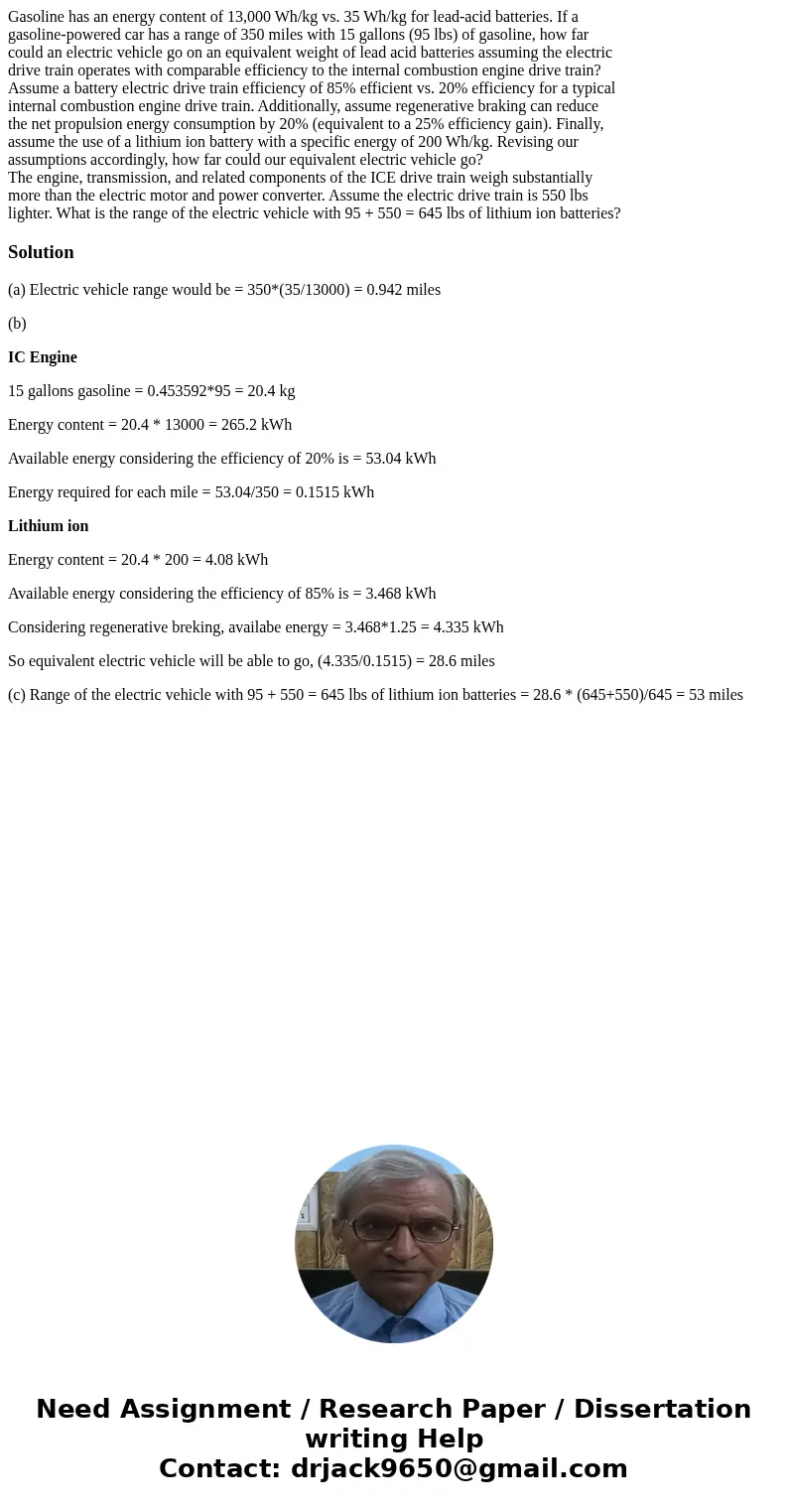Gasoline has an energy content of 13000 Whkg vs 35 Whkg for
Gasoline has an energy content of 13,000 Wh/kg vs. 35 Wh/kg for lead-acid batteries. If a
gasoline-powered car has a range of 350 miles with 15 gallons (95 lbs) of gasoline, how far
could an electric vehicle go on an equivalent weight of lead acid batteries assuming the electric
drive train operates with comparable efficiency to the internal combustion engine drive train?
Assume a battery electric drive train efficiency of 85% efficient vs. 20% efficiency for a typical
internal combustion engine drive train. Additionally, assume regenerative braking can reduce
the net propulsion energy consumption by 20% (equivalent to a 25% efficiency gain). Finally,
assume the use of a lithium ion battery with a specific energy of 200 Wh/kg. Revising our
assumptions accordingly, how far could our equivalent electric vehicle go?
The engine, transmission, and related components of the ICE drive train weigh substantially
more than the electric motor and power converter. Assume the electric drive train is 550 lbs
lighter. What is the range of the electric vehicle with 95 + 550 = 645 lbs of lithium ion batteries?
Solution
(a) Electric vehicle range would be = 350*(35/13000) = 0.942 miles
(b)
IC Engine
15 gallons gasoline = 0.453592*95 = 20.4 kg
Energy content = 20.4 * 13000 = 265.2 kWh
Available energy considering the efficiency of 20% is = 53.04 kWh
Energy required for each mile = 53.04/350 = 0.1515 kWh
Lithium ion
Energy content = 20.4 * 200 = 4.08 kWh
Available energy considering the efficiency of 85% is = 3.468 kWh
Considering regenerative breking, availabe energy = 3.468*1.25 = 4.335 kWh
So equivalent electric vehicle will be able to go, (4.335/0.1515) = 28.6 miles
(c) Range of the electric vehicle with 95 + 550 = 645 lbs of lithium ion batteries = 28.6 * (645+550)/645 = 53 miles

 Homework Sourse
Homework Sourse